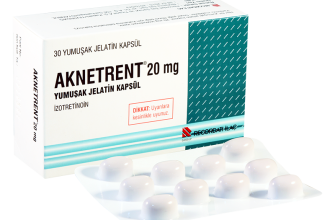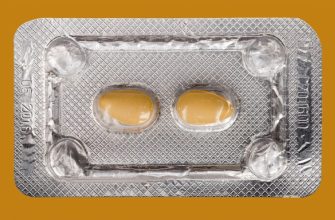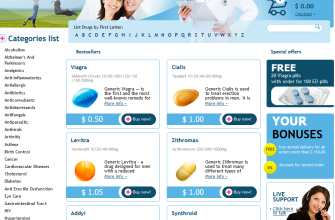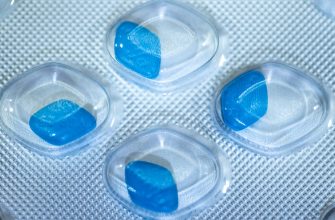Consider a targeted approach for managing symptoms of Attention Deficit Disorder (ADD) in patients who may also have asthma or allergic conditions. Singulair, primarily known for its role in controlling asthma and allergic rhinitis, has attracted attention for its potential benefits in addressing behavioral issues associated with ADD.
Research suggests that Singulair, containing montelukast, may help reduce hyperactivity and impulsivity in some children diagnosed with ADD. By effectively managing co-existing respiratory issues, this medication can lead to a more focused and calmer state, allowing individuals to engage more fully in daily activities.
Consult with healthcare professionals to explore whether Singulair could be integrated into your treatment plan. Monitoring both respiratory and attention-related symptoms is essential. If you’re considering this route, keep an open line of communication with your doctor to ensure that all aspects of the patient’s health are addressed holistically.
- Attention Deficit Disorder and Singulair: A Detailed Exploration
- Mechanism of Action
- Benefits and Considerations
- Understanding Attention Deficit Disorder (ADD)
- Implementing Practical Strategies
- Seeking Support
- How Singulair Works: Mechanism of Action
- Impact on Inflammation and Airway Tone
- Reduced Symptoms and Improved Quality of Life
- Link Between ADD and Allergies: An Overview
- Potential Role of Singulair in Managing ADD Symptoms
- Research Studies on Singulair for ADD Treatment
- Dosage Guidelines for Using Singulair in ADD Patients
- Administration Tips
- Adjustments and Considerations
- Side Effects of Singulair to Consider with ADD
- Common Side Effects
- Managing Side Effects
- Patient Testimonials: Experiences with Singulair and ADD
- Consulting Healthcare Professionals About ADD and Singulair
- Discuss Treatment Options
- Follow-Up and Monitoring
Attention Deficit Disorder and Singulair: A Detailed Exploration
Consider using Singulair as a treatment option for Attention Deficit Disorder (ADD) symptoms, especially when traditional medications aren’t effective. Singulair, primarily used for asthma and allergies, has garnered attention for its potential off-label benefits in managing ADD. Understanding its mechanisms can help you make informed decisions.
Mechanism of Action
Singulair works by blocking leukotrienes, which are substances in the body that can lead to inflammation and bronchoconstriction. This action may indirectly influence attention and focus by reducing inflammatory responses that could affect brain function. Patients may find improvements in concentration and reduced hyperactivity as a result.
Benefits and Considerations
- Improvement in focus and attention span reported by some users.
- Reduced impulsivity and hyperactivity in certain cases.
- Possible relief from co-existing conditions like allergies, enhancing overall well-being.
However, it’s essential to consult healthcare providers before starting Singulair for ADD. Monitor for any side effects, such as mood changes or gastrointestinal issues. Regular follow-ups ensure that the treatment aligns with individual health needs and responses.
Combining Singulair with behavioral therapy or other interventions often yields the best results. Tailoring the approach to fit personal circumstances is key; ensure that you discuss all options with your healthcare professional to find the most suitable strategy for managing ADD symptoms.
Understanding Attention Deficit Disorder (ADD)
Attention Deficit Disorder (ADD) impacts focus, self-regulation, and behavior. Individuals with ADD often struggle with sustaining attention, organizing tasks, and completing projects. Effective strategies can greatly enhance daily functioning. Start by establishing a consistent routine. This provides a framework that helps improve time management and reduces stress.
Implementing Practical Strategies
Breaking tasks into smaller, manageable steps simplifies overwhelming projects. Use checklists to track progress and celebrate small victories. Visual reminders, such as calendars and sticky notes, can reinforce important deadlines. Limit distractions in the environment, creating a dedicated space for work or study.
Seeking Support
Engaging with professionals, such as therapists or coaches specializing in ADD, offers tailored strategies. Support groups can also provide valuable resources and a sense of community. Encourage open communication with family and friends to create a supportive atmosphere at home and in social settings.
How Singulair Works: Mechanism of Action
Singulair functions by blocking the action of leukotrienes, which are chemicals in the body that contribute to inflammation and airway constriction. It specifically targets the cysteinyl leukotriene receptor 1 (CysLT1). By inhibiting these receptors, Singulair reduces swelling and mucus production in the airways, improving breathing for individuals managing asthma and allergies.
Impact on Inflammation and Airway Tone
Through receptor blockade, Singulair diminishes the inflammatory response and bronchoconstriction triggered by allergens, respiratory infections, and exercise. This dual action promotes clearer air passages and supports easier airflow, which can significantly enhance daily functioning in individuals with asthma or seasonal allergies.
Reduced Symptoms and Improved Quality of Life
Regular use of Singulair alleviates asthma-related symptoms such as wheezing and coughing. Patients frequently report better control over their conditions, leading to fewer emergency interventions and improved overall well-being. Continuous management can help prevent nighttime awakenings caused by asthma, enabling restful sleep.
Overall, Singulair offers a targeted approach to managing conditions associated with excess leukotriene production, making it a practical option for many patients.
Link Between ADD and Allergies: An Overview
Research indicates a significant connection between Attention Deficit Disorder (ADD) and allergic responses. Allergies can amplify symptoms of ADD, making management more complex. Identifying allergens, such as pollen, dust mites, and certain foods, plays a crucial role in alleviating ADD symptoms.
Consider using allergy testing to pinpoint specific triggers. Once identified, the use of antihistamines or allergy shots may provide relief. Clearer airways and reduced inflammation can lead to improved focus and decreased hyperactivity. Monitor your child’s environment and employ air purifiers to minimize exposure to allergens.
Maintain a healthy diet rich in omega-3 fatty acids, antioxidants, and essential vitamins. These nutrients support brain health and can mitigate some negative impacts of allergies. Incorporate foods like fish, nuts, and fruits into meals to enhance cognitive function.
Behavioral strategies also help manage symptoms. Regular routines can create stability and reduce overwhelm. Encourage physical activity, which has shown to improve attention and reduce anxiety. Outdoor play can also expose children to fresh air, potentially easing allergic reactions.
Collaboration between parents, teachers, and healthcare providers is key. Share observations about your child’s behavior and responses to treatment. This dialogue allows for tailored approaches to both ADD and allergy management.
Staying informed about potential allergens in your vicinity can aid in proactive measures. Seasonal changes may influence allergy intensity, so be prepared with an action plan. Sharing insights from your child’s experiences can further refine approaches for better overall well-being.
Potential Role of Singulair in Managing ADD Symptoms
Singulair, or montelukast, emerges as a potential option for individuals managing Attention Deficit Disorder (ADD) symptoms. Research suggests that its anti-inflammatory properties may contribute positively to cognitive function and behavioral regulation.
Consider the following aspects when evaluating Singulair for ADD:
- Mechanism of Action: Singulair works by blocking leukotrienes, which are chemicals in the immune system. This action may indirectly improve neurotransmitter balance in the brain, potentially impacting attention and focus.
- Clinical Studies: Some studies indicate a correlation between montelukast and reduced impulsivity and hyperactivity. Its ability to manage underlying inflammation may play a critical role in enhancing attention spans.
- Individual Response: Each person responds differently to medications. Monitoring and adjusting dosages with a healthcare professional can optimize outcomes for ADD symptoms.
Integrating Singulair into a broader treatment plan can be beneficial. Combine it with behavioral therapies and lifestyle modifications for a more comprehensive approach.
Consult with a healthcare provider to explore the suitability of Singulair in your or your child’s specific case. Regular follow-ups can help track progress and make necessary adjustments. Always prioritize a tailored plan that aligns with individual needs.
Research Studies on Singulair for ADD Treatment
Recent studies have explored the use of Singulair (montelukast) as a potential treatment for Attention Deficit Disorder (ADD), focusing on its effectiveness and safety profile.
-
Randomized Controlled Trials:
A significant randomized controlled trial assessed the effects of montelukast on children diagnosed with ADD. The results indicated improvements in attention span and behavior after eight weeks of treatment.
-
Effect on Comorbid Conditions:
Another study examined children with both ADD and asthma, suggesting that Singulair may alleviate symptoms of both conditions simultaneously. Participants noted enhanced focus and reduced respiratory issues.
-
Parent and Teacher Reports:
Parents and teachers involved in a survey reported noticeable behavioral improvements in children taking montelukast. Feedback highlighted reduced impulsivity and better task completion.
-
Long-term Use Studies:
A longitudinal study evaluated long-term outcomes for children treated with montelukast. Findings demonstrated sustained improvements in attention and the ability to follow instructions over a year of treatment.
While research presents promising insights into Singulair’s role in ADD management, ongoing investigations are necessary to understand the full range of its effects and any potential risks. Consulting healthcare professionals for personalized advice remains essential.
Dosage Guidelines for Using Singulair in ADD Patients
The standard dosage of Singulair (Montelukast) for children aged 6 to 14 years is 5 mg once daily in the evening. For adults and adolescents aged 15 years and older, the recommended dose is 10 mg once daily, also taken in the evening. These dosages aim to manage symptoms related to allergies and asthma, which may indirectly benefit attention-related difficulties in patients with Attention Deficit Disorder (ADD).
Administration Tips
Administer Singulair at the same time each day for consistency. Whether taken with or without food, ensure the patient follows a routine to enhance adherence. If a dose is missed, do not double the next dose; simply continue with the regular schedule.
Adjustments and Considerations
Monitor any potential side effects, including mood changes or gastrointestinal discomfort. If the patient experiences significant adverse effects, consult a healthcare provider about adjusting the dose. Some may require a lower dosage based on individual response or concurrent medications.
Regular follow-ups are imperative to assess the effectiveness of Singulair in managing ADD symptoms in conjunction with other treatments. Collaboration with a healthcare provider ensures the best outcomes tailored to the patient’s needs.
Side Effects of Singulair to Consider with ADD
Monitor mood changes closely when using Singulair alongside treatments for Attention Deficit Disorder (ADD). Some individuals may experience increased anxiety, agitation, or mood swings. These effects can interfere with focus and emotional regulation, making it harder for those with ADD to manage their symptoms.
Common Side Effects
| Side Effect | Frequency |
|---|---|
| Headache | Common |
| Fatigue | Common |
| Sleep disturbances | Common |
| Behavioral issues | Less common |
Managing Side Effects
To minimize negative symptoms, coordinate care with healthcare professionals. Regularly assess and adjust dosages as needed. Incorporate behavioral strategies that support focus and emotional balance. Maintaining a structured routine may help improve overall wellbeing while on Singulair.
Stay aware of any unusual behavioral patterns, such as aggression or agitation. Report these to your doctor promptly. This proactive approach ensures adjustments can be made quickly if necessary, optimizing treatment for both ADD and any coexisting conditions.
Patient Testimonials: Experiences with Singulair and ADD
One patient, Sarah, shares her positive experience: “After starting Singulair, I noticed a significant improvement in my focus. My doctor suggested trying it alongside my ADD treatment, and it made a noticeable difference. I feel more organized and less overwhelmed, especially during busy days.” This feedback highlights the potential benefits of Singulair for those managing ADD symptoms.
Another user, Mike, emphasizes the combination of therapies: “I was skeptical at first, but adding Singulair to my routine helped clear my mind. My allergies were making my ADD symptoms worse, and treating them simultaneously improved my concentration. I recommend discussing it with your healthcare provider.” Mike’s testimonial points towards the interconnectedness of symptoms and the importance of a tailored approach.
| Patient Name | Age | Experience |
|---|---|---|
| Sarah | 29 | Improved focus and organization after adding Singulair. |
| Mike | 36 | Clearer mind and better concentration with allergy treatment. |
| Emily | 24 | Reduced symptoms of both ADD and allergies, feels more balanced. |
Emily, another user, notes, “It feels like I finally found the right balance! Singulair has helped me manage my allergies, which often aggravated my ADD symptoms. Now, I can focus on my tasks without constant distractions.” Her experience underscores the advantage of treating coexisting conditions for improved overall function.
Each of these testimonials reflects a unique perspective, showcasing how Singulair can contribute positively to the management of ADD. Listening to individual experiences can provide valuable insights for those considering similar treatments. Always discuss with a healthcare provider to determine the best approach for your needs.
Consulting Healthcare Professionals About ADD and Singulair
Discussing Attention Deficit Disorder (ADD) with a healthcare professional is crucial for accurate diagnosis and treatment planning. When consulting with your doctor, come prepared with specific symptoms you or your child experience. Documenting instances of inattention, impulsivity, or hyperactivity can provide valuable insights during the appointment.
If Singulair (montelukast) is part of the discussion, clarify any concerns regarding its effects on attention and behavior. Some parents notice changes in their child’s focus while on Singulair, while others report no issues. Research is limited, but some studies suggest a potential link between leukotriene receptor antagonists and behavioral changes. Be sure to mention any side effects experienced, including mood swings or increased distractibility.
Discuss Treatment Options
Explore various treatment options for ADD, including behavioral therapies, lifestyle modifications, or medications. Inform your doctor about any treatments you’ve tried before, as it helps tailor future recommendations. If considering Singulair for asthma or allergies, understand how it may interact with ADD treatments.
Follow-Up and Monitoring
Establish a follow-up plan to monitor symptoms and treatment effectiveness. Regular appointments allow adjustments based on how you or your child responds to the medication. Maintain an open dialogue, providing updates on any changes, positive or negative, experienced during treatment. This collaborative approach ensures the best possible management of ADD with or without Singulair.










